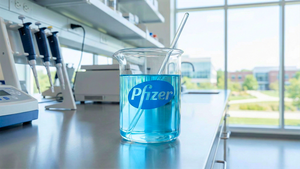Findings support the ongoing development of BBI-355, a novel, oral, selective inhibitor of checkpoint kinase 1 (CHK1) in Phase 1/2 development, as a differentiated treatment approach for ecDNA-enabled oncogene amplified cancers
Third poster presentation to highlight the potential role of ecDNA-based resistance to chemotherapy
Boundless Bio (Nasdaq: BOLD), a clinical-stage oncology company interrogating extrachromosomal DNA (ecDNA) biology to deliver transformative therapies to patients with previously intractable oncogene amplified cancers, presents preclinical and clinical pharmacodynamic data on its lead ecDNA-directed therapy (ecDTx), BBI-355, and research on ecDNA-mediated acquired resistance to chemotherapy at the American Association for Cancer Research (AACR) Annual Meeting 2024. BBI-355 is a novel, oral, selective inhibitor of checkpoint kinase 1 (CHK1) being studied in the ongoing, first-in-human, Phase 1/2 POTENTIATE clinical trial in patients with oncogene amplified cancers.
“Extrachromosomal DNA afford unique advantages to tumors, typically rendering existing therapies ineffective and correlating with poor patient outcomes,” said Chris Hassig, Ph.D., Chief Scientific Officer of Boundless Bio. “Our first poster presented this year at AACR demonstrated that BBI-355 overcame ecDNA-mediated targeted therapy resistance in preclinical tumor models by leveraging the enhanced reliance of ecDNA-driven tumor cells on CHK1 for survival. BBI-355 showed substantial antitumor activity, including complete and durable regressions, in preclinical oncogene amplified models.
Dr. Hassig continued, “Today we present preclinical and preliminary clinical pharmacodynamic biomarker assay data that showed detection of CHK1 inhibition-associated replication stress in both patient skin and tumor tissue following administration of BBI-355. In addition, we report a possible role for ecDNA in acquired resistance to chemotherapy observed in preclinical models, extending the potential applicability of ecDNA-directed strategies beyond targeted therapy resistance. We are encouraged by these findings as we continue to advance BBI-355 through the ongoing Phase 1/2 POTENTIATE clinical trial.”
Details of the presentations are as follows:
Title: Oral CHK1 inhibitor BBI-355 allows flexibility of dose and schedule with demonstration of monotherapy and combinational antitumor activity in extrachromosomal DNA (ecDNA)-driven oncogene amplified preclinical models
Abstract Number: 613
Session Category: Experimental and Molecular Therapeutics
Session Title: Kinase and Phosphatase Inhibitors 1
Session Date and Time: Sunday Apr 7, 2024, 1:30 PM – 5:00 PM PT
Location: Poster Section 25
Poster Board Number: 23
BBI-355 showed inhibition of CHK1 in a host of tumor cell lines and demonstrated in vivo single agent tumor growth inhibition, including complete tumor regressions, across a range of tumor models representing multiple different oncogene amplifications and tumor types. BBI-355 also demonstrated synergistic tumor growth inhibition, including durable regressions, when combined with targeted therapies across multiple oncogene amplified tumor models.
Title: Preclinical and clinical pharmacodynamic characterization of BBI-355, a novel, orally bioavailable, and selective CHK1 inhibitor being evaluated in the first-in-human Phase 1/2 POTENTIATE clinical trial of patients with cancer harboring oncogene amplifications
Number: 3631
Session Category: Clinical Research
Session Title: Biomarkers in Clinical Trials
Session Date and Time: Monday Apr 8, 2024, 1:30 PM - 5:00 PM PT
Location: Poster Section 40
Poster Board Number: 9
Historically, clinical CHK1 inhibitor programs have lacked effective clinical PD biomarker assays. The findings showed that phosphorylated-CHK1 Ser345 (pCHK1-S345) is a useful pharmacodynamic (PD) biomarker for confirming clinical on-target activity of BBI-355 and could potentially inform the pharmacologically active range of BBI-355 in clinical development. In addition to preclinical data, increased pCHK1-S345 expression by immunohistochemistry in skin biopsies from patients treated with BBI-355 in the ongoing POTENTIATE clinical study were also observed, marking the first, real-time analysis of PD activity from a CHK1 inhibitor in humans.
Title: Extrachromosomal DNA (ecDNA) amplification of multi-drug resistance genes results in acquired resistance to taxane-based chemotherapy
Abstract Number: 5870
Session Category: Experimental and Molecular Therapeutics
Session Title: Mechanisms of Drug Resistance 3
Session Date and Time: Tuesday Apr 9, 2024, 1:30 PM - 5:00 PM PT
Location: Poster Section 24
Poster Board Number: 14
Early insights into the role of ecDNA in driving resistance to paclitaxel, a taxane chemotherapy, are revealed and highlight the importance of ecDNA-directed therapies as a potential treatment option for many patients that have chemotherapy-resistant disease. Chemotherapy remains standard of care for many cancer patients, however, resistance to chemotherapy often develops and has been associated with the emergence of multi-drug resistance (MDR) gene amplification, such as ABCB1. These preclinical findings showed that ecDNA-enabled MDR gene amplification can cause short-and long-term resistance to paclitaxel, potentially driving resistance to chemotherapy in patients and underscoring the broad need for ecDTx for chemotherapy-resistant patient populations.
About BBI-355
Boundless Bio’s lead ecDNA-directed therapy (ecDTx), BBI-355, is a novel, oral, selective inhibitor of checkpoint kinase 1 (CHK1) being studied in the ongoing, first-in-human, Phase 1/2 POTENTIATE clinical trial (NCT05827614) in patients with oncogene amplified cancers. CHK1 is a master regulator of cells’ response to replication stress (RS). RS is elevated in ecDNA-enabled oncogene amplified cancer cells and, because of this, represents a key vulnerability of those cells. BBI-355 was designed to exploit the elevated RS in ecDNA-enabled oncogene amplified cancer cells by disrupting proper CHK1 function in regulating RS and thereby facilitating catastrophic RS to preferentially kill cancer cells relative to healthy cells.
About Boundless Bio
Boundless Bio is a clinical-stage oncology company dedicated to unlocking a new paradigm in cancer therapeutics to address the significant unmet need of patients with oncogene amplified tumors by targeting extrachromosomal DNA (ecDNA), a root cause of oncogene amplification and observed in more than 14% of cancer patients. Boundless Bio is developing the first ecDNA-directed therapy (ecDTx), BBI-355, which is an oral inhibitor of checkpoint kinase 1 (CHK1) and is being evaluated in a Phase 1/2 clinical trial in patients with oncogene amplified cancers. Boundless Bio’s second ecDTx, BBI-825, is an oral inhibitor of ribonucleotide reductase (RNR) and recently entered a Phase 1/2 clinical trial in cancer patients with resistance gene amplifications. Leveraging its Spyglass platform, Boundless Bio has additional programs advancing through preclinical development and discovery. Boundless Bio is headquartered in San Diego, CA.
For more information, visit www.boundlessbio.com.
Follow us on LinkedIn and Twitter.
Forward-Looking Statements
Boundless Bio cautions you that statements contained in this press release regarding matters that are not historical facts are forward-looking statements. The forward-looking statements are based on our current beliefs and expectations and include, but are not limited to: the potential therapeutic benefits of our ecDTx in treating patients with oncogene amplified cancers; and the possibility to extend potential applicability of ecDTx beyond targeted therapy resistance. Actual results may differ from those set forth in this press release due to the risks and uncertainties inherent in our business, including, without limitation: we are early in our development efforts and our approach to discover and develop ecDTx directed against ecDNA in oncogene amplified cancers is novel and unproven; results from preclinical studies or early clinical trials not necessarily being predictive of future results; potential delays in the commencement, enrollment, data readouts or completion of clinical trials or preclinical studies; our dependence on third parties in connection with clinical trials, preclinical studies, ecDNA diagnostic development, and manufacturing; unfavorable results from clinical trials or preclinical studies; unexpected adverse side effects or inadequate efficacy of our ecDTx that may limit their development, regulatory approval, and/or commercialization; regulatory developments in the United States and foreign countries; and other risks described in our filings with the Securities and Exchange Commission (SEC), including under the heading “Risk Factors” in the final prospectus dated March 27, 2024 that we filed with the SEC and any subsequent filings with the SEC. You are cautioned not to place undue reliance on these forward-looking statements, which speak only as of the date hereof, and we undertake no obligation to update such statements to reflect events that occur or circumstances that exist after the date hereof. All forward-looking statements are qualified in their entirety by this cautionary statement, which is made under the safe harbor provisions of the Private Securities Litigation Reform Act of 1995.
View source version on businesswire.com: https://www.businesswire.com/news/home/20240407867079/en/
Contacts
James Lee, Boundless Bio
jlee@boundlessbio.com
Media
1AB
Dan Budwick
dan@1abmedia.com






